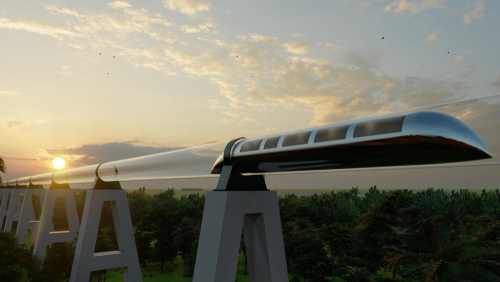
Virgin Group founder Richard Branson announced last week that West Virginia would be home to the Virgin Hyperloop Certification Center (HCC).
The HCC would be the location for all certification of hyperloop systems in the United States and globally. It is the first step toward commercial projects.
“Today is one of the most exciting days in Virgin Hyperloop’s history,” Branson said. “The Hyperloop Certification Center is the start of the hyperloop journey for West Virginia, for the United States, and for the world. We’re one step closer to making hyperloop travel a reality for people everywhere.”
Virgin Hyperloop is an entirely new transportation mode that uses an enclosed system powered by electricity and magnetism to propel pods containing up to 28 passengers to destinations at speeds of up to 1,000 kilometers per hour.
“Today is a fantastic day for the state of West Virginia, and I’d like to be the first to officially welcome the folks from Virgin Hyperloop to their new home,” said West Virginia Gov. Jim Justice. “For years, I have been saying that West Virginia is the best-kept secret on the East Coast, and it’s true. Just look at this announcement and all it will bring to our state – investment, jobs, and tremendous growth. It’s a true honor and privilege to be selected as the site for the Hyperloop Certification Center and lead the nation in this next step forward for transportation. When we approached Virgin Hyperloop, I told them that we would do everything we could to bring this opportunity to West Virginia. We look forward to working with the Virgin Hyperloop team to create a lasting partnership for years to come.”
Earlier this year, the U.S. Department of Transportation Secretary Elaine Chao and the Non-Traditional and Emerging Transportation Technology Council released guidance on the regulatory framework for hyperloop in the United States, providing a pathway for regulation and deployment, as well as establishing the project’s eligibility for federal funding.
Virgin Hyperloop aims to achieve safety certification by 2025, with commercial operations beginning in 2030.